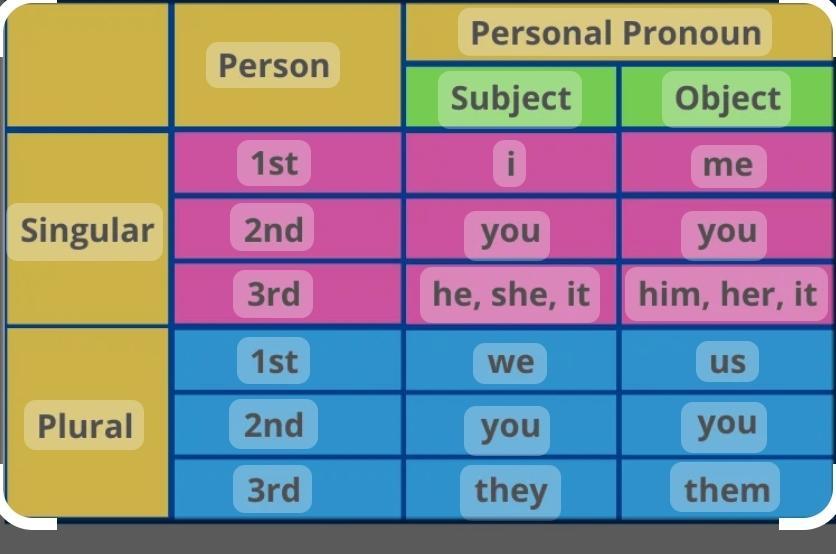A. Change the underlined words by personal pronouns.
1. [Peter and Paul] have decided to take a
computer course.
2. [The champions] were playing a game against [my friends.]
3. [These sweets] are for [Jane.]
4. [The jacket] is too small for [your son].
5. Give [ the presents] to the children.
Ответы
Ответ:
Замените подчеркнутые слова личными местоимениями.
1. They have decided to take a computer course.
2. They were playing a game against them.
3. They are for her.
4. It is too small for him.
5. Give them to the children.
Объяснение:
The personal pronouns for subjects are: I, you, he, she, it, we, and they.
For objects, they are: me, you, him, her, it, us and them.
•Peter and Paul = they
•The champions = they
• My friends =they=them
•These sweets = they
•Jane = she=her
•The jacket = it
•Your son =he=him
• The presents =they=them
Личные местоимения в английском языке бывают двух видов: субъектные (subject pronouns) и объектные (object pronouns). Субъектные выступают подлежащим (subject) в предложении и отвечают на вопросы Кто? Что? Объектные же выступают дополнением(object) и отвечают на вопросы падежей: Кого? Чего?, Кому? Чему?, Кем? Чем? и так далее.
#SPJ1
